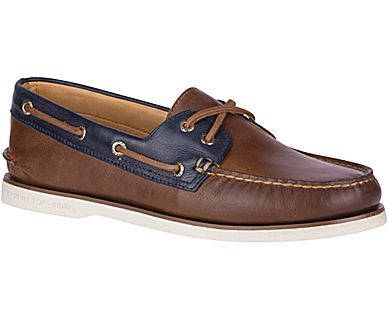When you finish your morning workout, you probably feel like eating everything in sight. Unfortunately, this may not be the best way to go about it. The post-workout meal is an important time for refueling your body and restoring glycogen stores. Here are some foods you should eat after a morning workout to help you lose weight:
Protein
Protein is essential for muscle repair and growth. It also helps keep you feeling fuller longer and aids in fat loss by increasing the number of calories your body burns throughout the day. According to a study published in “Nutrition & Metabolism,” people who consumed protein shakes after exercise lost twice as much weight as those who did not consume protein shakes after exercise over an eight-week period.
Fiber-Rich Carbohydrates
Eating fiber-rich carbohydrates after working out can help restore glycogen levels faster than simple sugars because they take longer to digest, according to Healthline.”The more quickly your body restores its glycogen stores post-workout, the sooner you’ll recover from fatigue,” Healthline explains. A pear contains 2 grams of fiber per serving and 13 grams of total carbohydrate per serving.
What To Eat After Morning Workout For Weight Loss

What should you eat after working out?
Physical activity uses a lot of energy. It is difficult for the body to recover if energy levels are not replenished within 15 to 30 minutes after finishing a workout. Eating even a little snack shortly after exercising can help to restore energy levels.
In this article, we explore several components of a healthful post-workout snack and describe how they benefit the body.
What to eat after exercise and why

The following are examples of foods and compounds that help the body to absorb nutrients quickly and speed recovery.
Dairy protein
According to researchTrusted Source published in 2017, as few as 9 grams (g) of milk protein may be enough to stimulate protein synthesis in the muscles, aiding in recovery after exercise.
Other than milk, dairy products rich in protein include:
- Greek yogurt
- ricotta cheese
- cottage cheese
- kefir
In fact, a 1 cup serving of low-fat kefir contains 9.2 gTrusted Source of high-quality protein. These proteins can repair new cells, especially those in the muscles. These proteins also contain all of the essential amino acids, which are only available through the diet.
In 2007, some researchers found that milk-based proteins are more effectiveTrusted Source than soy-based proteins at promoting the growth of muscle proteins after resistance exercise.
The researchers concluded that while both milk and soy proteins help a person to maintain and build muscle mass, milk proteins were more effective at supporting the quick growth of lean muscle mass.
Eggs
Results of a study from 2017Trusted Source suggested that consuming whole eggs after resistance exercise resulted in more protein synthesis than consuming egg whites with the same protein content.
The researchers concluded that the nutrients in the yolk helped to stimulate the muscles more effectively.
Omega-3 fatty acids
ResearchTrusted Source from the Washington University School of Medicine suggests that supplementation with omega-3 fatty acids helps to boost the synthesis of muscle proteins and increase the size of muscle cells in healthy young and middle-aged adults.
Fatty fish, including salmon, are rich in omega-3 fatty acids. Tuna also contains high levels of the fatty acids, and about 6 ounces (oz) of tuna packed in water contains 41.6 gTrusted Source of protein and 5.4 gTrusted Source of fat.
Other evidence shows that oil drawn from fatty fish may help to reduce muscle soreness after resistance training. A study from 2016 found that consuming 6 g of fish oil every day for 1 week before beginning resistance exercise resulted in reduced muscle soreness.
Carbohydrates

Consuming carbohydrate-rich foods may be the best way to reduce the decreases in immunity that can occur after exercise.
Consuming carbohydrates as part of a post-workout snack also helps to promote glycogen storage.
Sweet potatoes, grains, and fruits can contain high levels of healthful carbohydrates, as can quinoa.
Quinoa is gluten-free, classified as a pseudocereal, and usually consumed as a grain. It is high in fiber and rich in protein, with 1 cup providing 8.14 gTrusted Source.
Also, quinoa has a low glycemic index, making it an excellent choice for people who regulate their blood sugar.
Herbal tea
The nutrients and chemical compounds in herbal teas, especially yerba mate, may help the body process carbohydrates and protein effectively.
Authors of a studyTrusted Source from 2016 compared the effects of yerba mate to water after exercise. The participants who drank yerba mate recovered strength faster in the 24 hours that followed a workout.
In 2012, researchers found that mice administered yerba mate extract were able to metabolize more quickly and expend more energy than those who did not.
Water
It is essential to drink plenty of water before, during, and after a workout. Staying hydrated ensures that the body gets the most benefit from exercise.
The body loses water and electrolytesTrusted Source while sweating, so drinking water during and after a workout promotes performance and recovery.
Everybody varies in the amount of water they need, depending on the type of exercise, how much they sweat, how thirsty they are, as well as other factors.
The importance of the post-workout snack
During exercise, the muscles use up stored glucose, called glycogen, and levels become depleted.
Endurance sports, such as running, use up more glycogen than resistance activities, such as weightlifting. Another effect of exercise is that the muscles develop small tears.
Getting the right nutritional balance after exercise restores energy levels and reduces fatigue, helping the body to repair muscles and build strength for future workouts.
Proteins, carbohydrates, and healthful fats are all essential for the body’s recovery.
Protein
Exercise supports muscle growth, but the body can only build upon existing muscles if they recover after each workout.
Consuming protein after exercise helps the muscles to healTrusted Source and prevents the loss of lean mass. Lean mass contributes to a muscular and toned appearance.
Carbohydrates
Carbohydrates are macronutrients that help the body to recharge and restore its fuel supply.
Anyone who exercises more than seven times a week should consume plenty of carbohydrates, as they quickly replenish glycogen levels.
What about fat?
Many people believe that consuming fat after exercising slows digestion and the absorption of nutrients. For some types of fat, this may be true.
However, there is little information about the post-workout effects of fat calories. It may be a good idea to limit fat intake after exercise, but low levels of fat are unlikely to inhibit recovery.
Takeaway
Consuming carbohydrates, proteins, and some fats after exercising helps to encourage muscle protein production, and promote recovery with the best results.
Arrange to eat a snack as soon as possible after a workout. Also, remember to replace fluids and electrolytes by drinking water before, during, and after exercise.
SLIM DOWN WITH THESE 8 DELICIOUS POST-WORKOUT SNACKS
The right training plan is important if you want to lose weight, but you shouldn’t forget about your post-workout meal. If you treat yourself to a pizza after every workout, you’re never going to shed those extra kilos or pounds
After your workout, make sure to eat a good mix of macronutrients: Carbohydrates provide you with energy while protein is essential for strong and firm muscles. And don’t forget about high-quality fats!
If you want to lose weight, try one of the snacks below after your next workout:
1. BANANAS WITH PEANUT BUTTER

If you are hungry after your workout, try eating a banana with one or two spoonfuls of peanut butter. But make sure to use pure peanut butter – without additives like sugar or palm fat. The bananas provide you with carbohydrates, potassium and magnesium. These are important for recovering from your workout. The peanut butter contains essential proteins and fat.
2. BAKED SWEET POTATO AND EGG

The loaded sweet potato skins take some time to prepare, but they are well worth it: (Sweet) potato and egg are the perfect combination when you want a snack with a high biological value. This value specifies how many grams of the body’s own protein can be produced from 100 grams of dietary protein. Just because you eat something with 20 g of protein, for example, doesn’t mean your body is able to absorb it all – that’s why the biological value is important.
3. GREEK YOGURT WITH BERRIES

Greek yogurt has a high protein content: One container (200 g) contains 10 to 15 g of the macronutrient. Raspberries, strawberries and blueberries (fresh or frozen) are low calorie, low carb and rich in antioxidants.
Our tip:
Fill a jar with yogurt for the perfect snack on the go. And if you want to enjoy it for breakfast, just mix in some oats.
4. EDAMAME

Have you ever tried this amazing weight-loss snack? The green soybeans are very low in calories: 100 g of edamame have a mere 125 calories. In comparison, 100 g of chips contain about 500 calories. Also, one serving of edamame provides you with nearly 15 g of protein.
5. COTTAGE CHEESE WITH VEGETABLE STICKS

Plain cottage cheese is very high in protein. Try eating it with some carrot or cucumber sticks. Or are you in the mood for a sweet snack? Sprinkle some freshly grated vanilla or cinnamon over it.
Did you know that cottage cheese contains lots of leucine? This amino acid promotes muscle protein synthesis after your workout. The more muscle you have, the more calories you burn when resting. This in turn results in more weight loss.
6. QUINOA SALAD

A mixed quinoa salad is a delicious post-workout meal. If you make a little extra, you can also enjoy it for lunch tomorrow. Quinoa, a “pseudo-cereal”, is a vegan source of protein. 100 g of quinoa contains almost 15 g protein. Tip: Mix in some beans and chickpeas for some added protein.
7. POST-WORKOUT SHAKE

Peanut butter and bananas go great together, especially as a shake. Blend them together with some milk, freshly grated vanilla and cocoa. Enjoy a natural post-workout shake without artificial protein powder.
8. SAVORY MUFFINS

Two or three savory vegetable muffins provide you with plenty of protein. And the best thing about this recipe is that you can make a large quantity of your post-workout snack ahead of time. Not enough carbohydrates for you? Then just eat them with a slice of whole grain bread.



